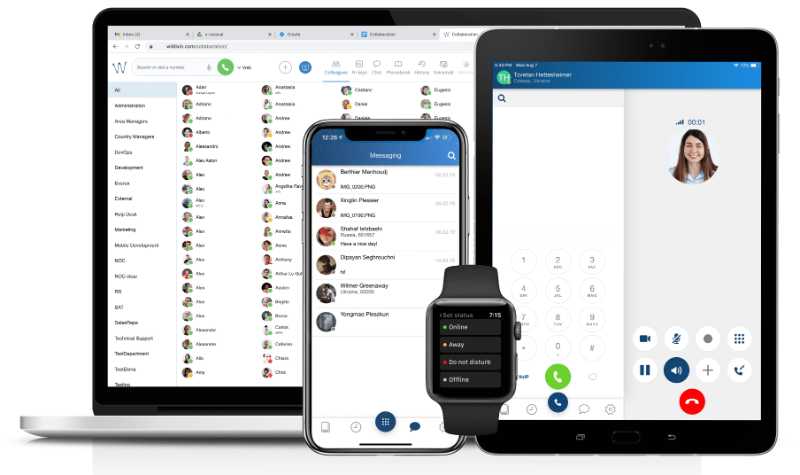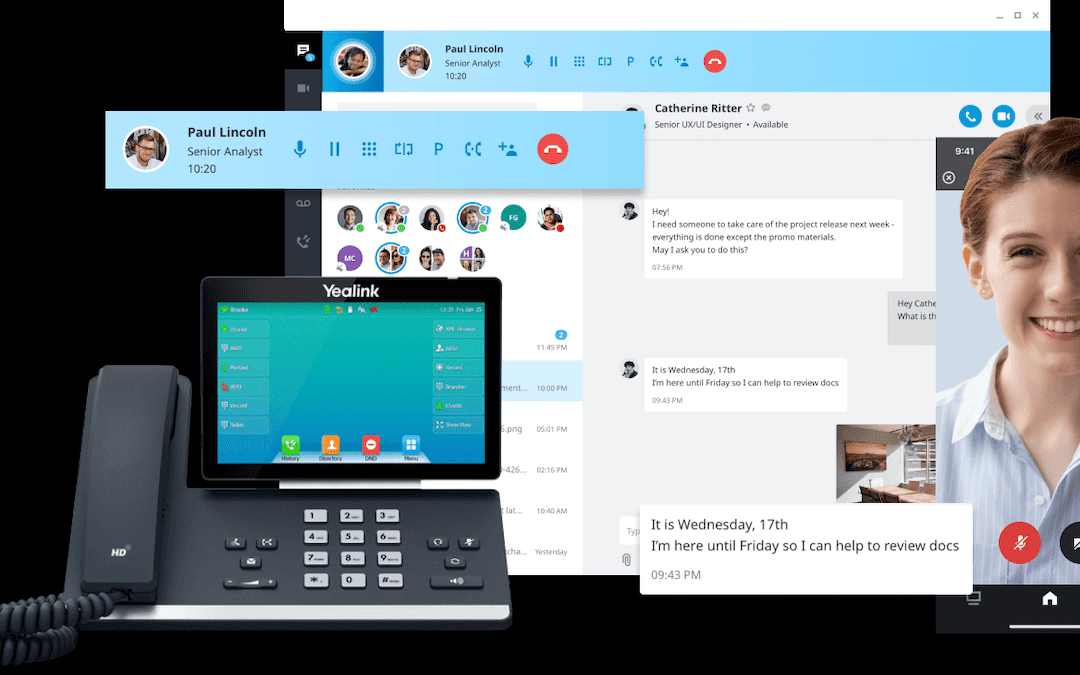What is a Softphone?
“Softphone” is a term in the telecommunications industry that refers to a computer-based phone. In other words, a phone service that works through either your internet browser or downloadable software.
A softphone can make and receive calls exactly as a traditional desk phone can. It can even replicate many features of traditional key systems such as:
• Managing different “lines” (i.e., simultaneous calls)
• Transfer, park, and hold
• Merging calls
• Function keys (for example, dialing other extensions)
• Call history
• Voicemail
• Find me follow me/forwarding settings

Are there any advantages to using a softphone over a traditional desk phone?
Certainly. Here are just a few:
• Hardware Replacement. Traditional desk phones have limited warranty periods, and every model will eventually go out of support by their respective manufacturers. Softphones avoid this issue since they are software, not hardware. While they will need to be updated as new versions are occasionally released (just like any other software), this upgrade can be done digitally, saving time and effort. You do not need to waste time buying and installing new equipment periodically when updates can be done with the press of a button.
• Consolidation. If you are working in an office environment, you already have a computer at your desk that is perfectly capable of acting as a phone in addition to serving your other needs. Why waste time, money, and desk space on a secondary device that has less processing power than your PC (personal computers) anyway?
• Digital Integration. Have you ever wanted to just click to dial a number from your web browser or excel spreadsheet? This operation is not possible with a desk phone but is simple and easy to do with a softphone. In addition, softphones can integrate with many CRM services such as ZoHo, Sugar, or Autotask in ways that are simply impossible with desk phones.
Are there any downsides to using softphones?
While there are certainly points of failure with softphone devices, the same could be said for any device, including desk phones. In fact, by analyzing common counter arguments against softphones, we can see that not only do desk phones often have the same issues, but they are often even more vulnerable to them.
• What if I have an internet outage? Internet outages are a significant risk for softphones since they cannot function without internet access. However, this is also true of desk phones, assuming they are also utilizing VoIP (Voice Over Internet Protocol), which they should be. (See our article “Don’t Let the Sun Set on Your Copper Wiring” for more information). Analog telephone lines will soon disappear forever, which means all communication in the future will rely on VoIP anyway. Meaning that if your softphone is down, your desk phone would be too.
• What if I have a computer error? It is true that computer errors are a failure point for softphones. For example, if your PC encounters fatal errors. In this scenario, your computer cannot make or receive calls. Fortunately, there is a solution. Most VoIP providers (including every option offered by Triton) support mobile apps. You can download the same software to your mobile device and answer calls on your cell phone while waiting for your PC to become fixed.
• Does this mean I have to order a headset for my PC? Yes. You will need a device that can transmit and receive audio professionally. We at Triton realize headsets can be expensive. However, this expense is offset by the fact that you are not spending the same amount, or even more, on a desk phone that you may end up ordering a headset for anyway. Headsets are truly the most professional and efficient way to communicate, and there are no restrictions when it comes to selecting the exact device you want for your softphone. Desk phones on the other hand may require special parts to facilitate the headset integration (incurring even more cost and frustration) and/or may only work with certain models, severely limiting your options.




Recent Comments